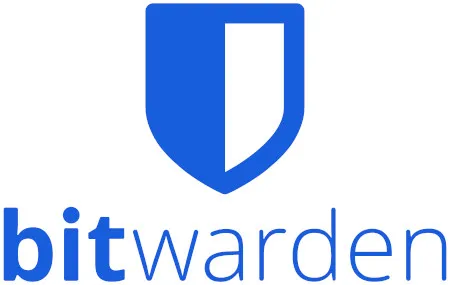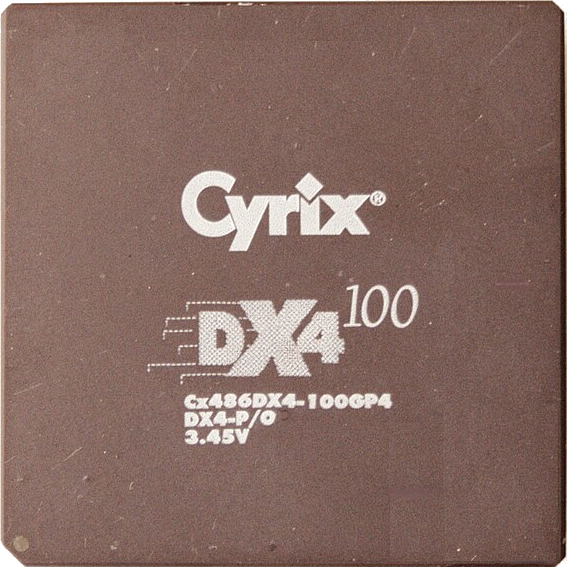Cool.
I just started using Bitwarden almost a year now. I don’t know how I lived without it before? It’s nice to know I wont have to switch to something else.
I’ve been using it for years, I’m so glad I don’t have to switch
I’m nerdy enough to use bitwarden but not nerdy enough to truly understand this.
Can someone explain it like I’m 5?
Sure. The majority of the BitWarden client is licensed under the GPL, which categorizes it as “free software”. However, one of the dependencies titled “BitWarden-SDK” was licensed under a different proprietary license which didn’t allow re-distribution of the SDK. For the most part, this was never a problem as FOSS package maintainers didn’t include the dependency (as it was optional) and were able to compile the various clients and keep the freedoms granted by the GPL license. However, a recent change made BitWarden-SDK a required dependency, which violated freedom 0 (the freedom to distribute the code as you please). BitWarden CTO came out and said this was an error and fixed this, making BitWarden SDK an optional dependency once again which now makes BitWarden free software again. For the average joe, this wouldn’t have mattered as BitWarden SDK contains features that are usually favored by businesses and the average Joe can live without. So everything now returns back to normal, hopefully.
Now could you explain it like I’m 4?
You don’t know any 5yo software engineers?
This seems like classic corporate backtracking when their customers spot a terrible, deliberate decision.
That being said, I am happy about it. I got my company to use it and finally got my girlfriend to use it and just recommended it to her brother. Would hate to have to try to find something else
This seems like classic corporate backtracking when their customers spot a terrible, deliberate decision.
I didn’t think that’s the case here
However, would you rather that the feedback of users NOT change behavior? I’m not entirely sure what your end game is here, you WANT corporations to ignore and not take action on feedback?
Why do they have to “WANT” that? Ignoring the fact that they literally said they were happy it was changed back, why does that matter to the criticism? If it’s true, it’s true, and the fact that corporations are the ones in a position to habitually make terrible decisions about FOSS is a big problem. It’s valid to point out that it would be good to find a better way.
If anything it sounds like you “WANT” to ignore it.
I don’t think so, to be honest. The bitwarden-sdk had been there for a VERY long time and you could always compile without it. Not being able to build a FOSS client wouldn’t hurt bitwarden’s bottom line too much. Most people use whatever is provided in the app stores (which is compiled with the source available sdk).
I was really sceptical of the CTOs first response, but this does actually seem to be genuinely good news.
First Winamp and now Bitwarden. The open source ecosystem is truly dead /s.
You didn’t read it then.
Wow, /s has really lost its meaning on the internet 😂
except that the case of winamp and bitwarden couldn’t be more different.
If you think the meaning is “funny joke, upvotes to the left”, no, it never meant that.
If that wasn’t on purpose than that was a big fuckup. I was sometimes thinking about testing Bitwarden but with this volatile license situation I’m not interested anymore.
That’s a poor understanding of the situation. Nothing in the licensing changed. The SDK has always been the proprietary business to business secrets management product. The client integrates with and can use that SDK to provide the paid service to businesses. The client and the server side management of password has always been and still is FOSS.
This was apparently an accidental change in the build code (not the client code, just the building scripts) that required the inclusion of the SDK to build the client when actually it has never and doesn’t really need any of that code. It prevented building the client without accepting the SDK license. Which it shouldn’t.
This was fixed and some things will be put in place so it doesn’t happen again. Nothing in the licensing scheme changed, at all. This is not a catastrophic enshittification event. A Dev was just being lazy and forgot to check the dependencies on the build chain before their commit.
And, amazingly, someone still downvoted you.
Idiots downvoting amazes you? Then there’s a whole world of amazement awaiting you!
Thanks for the summary, it adds great clarity to seeing how it could happen
Nothing in the licensing scheme changed, at all.
This statement is incorrect. The SDK had specific source files placed exclusively under the SDK license, and the remainder of the repository dual licensed between GPL 3 and the SDK license. So the licensing scheme did change.
See also: https://github.com/bitwarden/sdk-internal/blob/main/LICENSE
“I only read the headline and the comments from the threads a week ago, I am truly disappointed in Bitwarden’s stance against FOSS as I’ve misunderstood it.”
vaultwarden
Something tells me you’re the kind of person who sees a car turn the same direction as you twice and starts freaking out that you’re being followed…
Why would anyone trust any company with their passwords??
Just use keepass and not bother with BS
Because most people need a cloud solution for synchronization across devices. Unless you’re spinning up your own service like Nextcloud or similar for this, relying on a commercial cloud storage service for storing the file is just as dangerous (perhaps more so, as your attack surface is now across two third party services) as relying on someone like Bitwarden or Lastpass.
There’s a big difference. You trust entities like bitwarden/lastpass/etc to properly encrypt the data, protect your master key, and trust their entire architecture behind the scenes.
When you encrypt the keepass DB that’s all done by you locally with a open source client. No one knows your master key, and you get a simple encrypted file. You can hand that file to hackers if you want, will be useless without the key.
I put one of the copies of my keepass on onedrive, and syncs perfectly across all devices.
Companies can enshiffity at a moments notice.
Lol, imagine ridiculing users for trusting an FOSS company to handle their password management, and then storing your encrypted password DB in Microsoft’s OneDrive 😆
encrypted is the key word
I knew a comment like this was coming, but unless you can show how microsoft can decrypt my kdbx I stand fully by my current setup.
I don’t think Microsoft can decrypt your DB file, neither do I think Bitwarden can. Encryption happens locally on their open source clients too.
But I’m not the one disparaging trusting an open source program to securely encrypt passwords, you are.
Could you please show how bitwarden can decrypt a vault that’s locally encrypted by a foss client?
“Imagine trusting any company with your passwords”
They created the client. In theory, they can have some backdoors. And since you store your files on their side, risk is greater, imo
This is where your lack of understanding of the open source thing is readily apparent to everyone arguing with you. If it was backdoored, many people would be calling that out. In fact, this was one of the exact reasons at the heart of the original concerns leading to this story.
The fact that the source is available means that we can see exactly how the data is encrypted, allowing assurances to be made independently.
If nothing else, I trust Bitwarden MORE because of that and I’m happy to pay them for their services since it helps find further development.
I do not trust bitwarden to encrypt my data anymore than anyone trusts keypass to encrypt my data.
They’re both open source and they both do the encryption locally; you’re plainly mistaken.
Except for the part that it’s not a question of trust (being open source), there’s no third-party architecture to trust (it can and should be self-hosted), the data on the server are also encrypted client-side before leaving your device, sure.
Oh, and you also get proper sync, no risk of desync if two devices gets a change while offline without having to go check your in-house sync solution, easy share between user (still with no trust needed in the server), all working perfectly with good user UI integration for almost every systems.
Yeah, I wonder why people bother using that, instead of deploying clunky, single-user solution.
Bitwarden can be fully self hosted, I’m doing it. My Bitwarden server doesn’t (and can’t) talk to them at all as it has no way to access the internet. They know nothing about my deployment except that I signed up for a free license key.
Are you a software developer ? Because you are way out of touch with what users want.
I get why you’d suggest the previous commenter is out of touch with what users want, but what does that have to do with being a software engineer?
A joke about shitty developers.
Well, who did you trust to build your hardware?
I used to use Keepass and sync thing and would consistently run into conflicts between my desktop and mobile entries. Maybe there’s a better way to do it that I’m missing, but that was very annoying
I use this setup for my personal passwords, using nextcloud as the sync solution. A semi-fix for that was using Keepass2Android (on Android obviously). It integrates with nextcloud directly, keep a local DB of passwords, and would only load the remote one (and merge) on unlock and updates, not keeping it “constantly” sync on every remote change. It works well… most of the time… with only two devices that almost always have connection to the server… and for only one user.
It’s overly clunky though. It’s the big advantage of “service based” password manager against “single file based” ones. They handle sync. We have plans to move to bitwarden at my workplace, and since the client supports multiple accounts on multiple servers, I’ll probably move to that for personal stuff too. The convenience is just there, without downside.
cuz being able to log in is handy sometimes





















